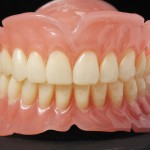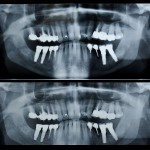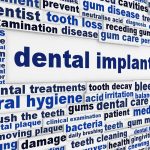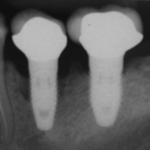This review of motivational interviewing (MI) for the oral morbidities in adults included 7 randomised controlled trials. The findings focused on periodontal outcomes suggesting that MI has the potential to improve plaque and bleeding indicies.
[read the full story...]Results: 350
For: periodontal diseasePlaque accumulation with clear aligners and fixed orthodontic appliances

This review comparing plaque accumulation in orthodontic patients undergoing clear aligner (CA) and conventional fixed appliance treatment included 14 studies. The findings suggested less plaque accumulation with CA but all the included studies were at moderate to high risk of bias.
[read the full story...]Edentulism in diabetics compared to non-diabetics

This review of the prevalence of edentulism among diabetic patients compared to non-diabetic people included 7 cross-sectional studies. The findings suggest a higher level of edentulism in diabetic patients but the findings should be interpreted cautiously.
[read the full story...]Supportive care to prevent recurrence or progression of peri-implantitis

This review of whether supportive care is effective in preventing recurrence or progression of peri-implantitis included 15 studies. However none of the included studies was specifically designed to test supportive care regimens so there is a need for new well conducted and reported randomised trials of appropraite size and duration to provide better quality evidence.
[read the full story...]How clean is your toothbrush?

This review of the level of toothbrush contamination and the factors affecting contamination in the general population included 15 studies. The findings show that toothbrush contamination occurs after first use and rises with continuing use. However, there is little evidence of significant adverse events from current practices.
[read the full story...]Oil pulling for oral health

This review of oil pulling compared to chlorhexidine and other mouthwashes in improving the plaque, gingival and bacteria count parameters included 25 RCTs. However, the studies are modest in size of short duration and all except one study were considered to be at high risk of bias. Consequently the available evidence is of very low certainty and should be interpreted cautiously.
[read the full story...]Oral piercings and periodontal health

This review of the influence of oral piercings on the periodontal health status in adult patients included 8 small observational studies. In line with other reviews the findings indicate adverse effects on periodontal health from oral piercings. However the quality of the evidence is low.
[read the full story...]Vitamin D and periodontitis

This review compared vitamin D levels in individuals with or without periodontitis, and the effects of scaling and root planing (SRP) +vitamin D on periodontal clinical parameters in patients with periodontitis. The findings suggest a possible benefit but the quality of evidence means the findings should be interpreted very cautiously.
[read the full story...]Smoking and the incidence of peri-implantitis

This review of the influence of smoking on the incidence of peri-implantitis included 6 prospective cohort studies involving a total of 762 patients. The findings suggest an increased patient-level risk of peri-implantitis in smokers risk ratio = 2.08 (95%CI; 1.17 to 3.71.
[read the full story...]Peri-implantitis – adjunctive measures to non-surgical peri-implant therapy

This review of the effectiveness of patient-performed or administered adjunctive measures to non-surgical peri-implantitis therapy included 9 RCTs. A wide range of interventions were tested but the studies were mainly small with only one being at low risk of bias. Consequently addition high quality well conducted studies are needed on both the prevention and treatment of peri-implant disease.
[read the full story...]